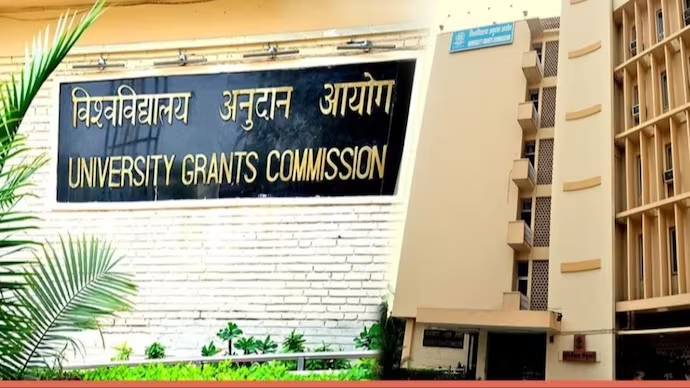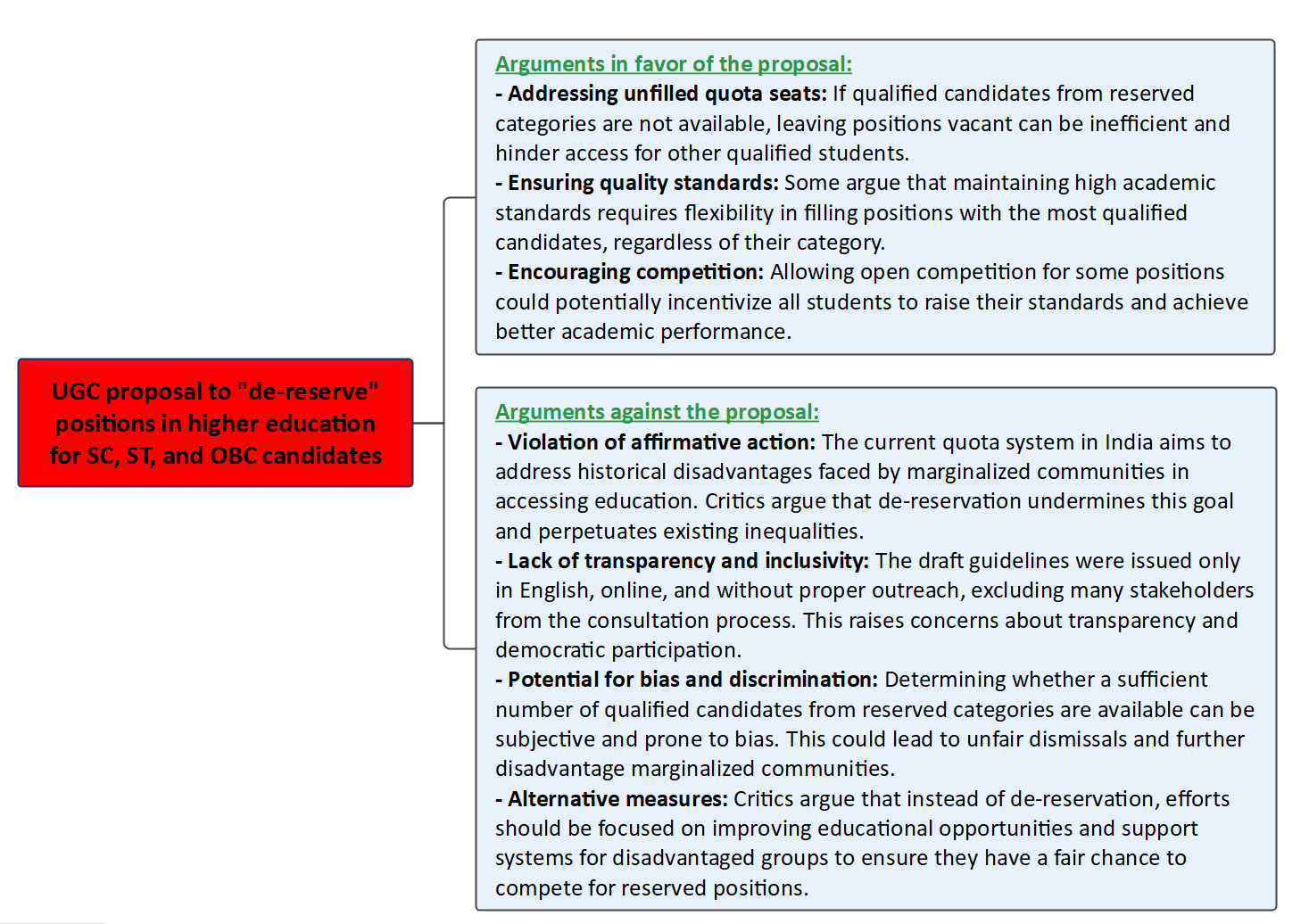





Copyright infringement not intended
Picture Courtesy: www.indiatoday.in
Context: The University Grants Commission (UGC) draft guidelines proposing the "de-reservation" of positions in higher education institutions have sparked significant controversy and student protests.
Details
Content of the Draft Guidelines
Criticism of the Draft Guidelines
Assurance from UGC Official
|
Summary of Draft Guidelines: The draft guidelines stipulate that if an adequate number of candidates from SC, ST, and OBC categories are not available for a reserved vacancy, it can be declared "unreserved," allowing candidates from the general category to apply. |

Must Read Articles:
RESERVATION SYSTEM: https://www.iasgyan.in/daily-current-affairs/reservation-system#:~:text=In%20India%2C%20about%2060%25%20of,abled%20persons%20across%20all%20categories.
|
PRACTICE QUESTION Q. While caste remains a primary criterion for reservations; other forms of marginalization exist based on socioeconomic status, gender, religion, and disability. How can the reservation system be expanded or reformed to address these diverse forms of disadvantage without creating new complexities or diluting the benefits for existing beneficiaries? |




© 2026 iasgyan. All right reserved